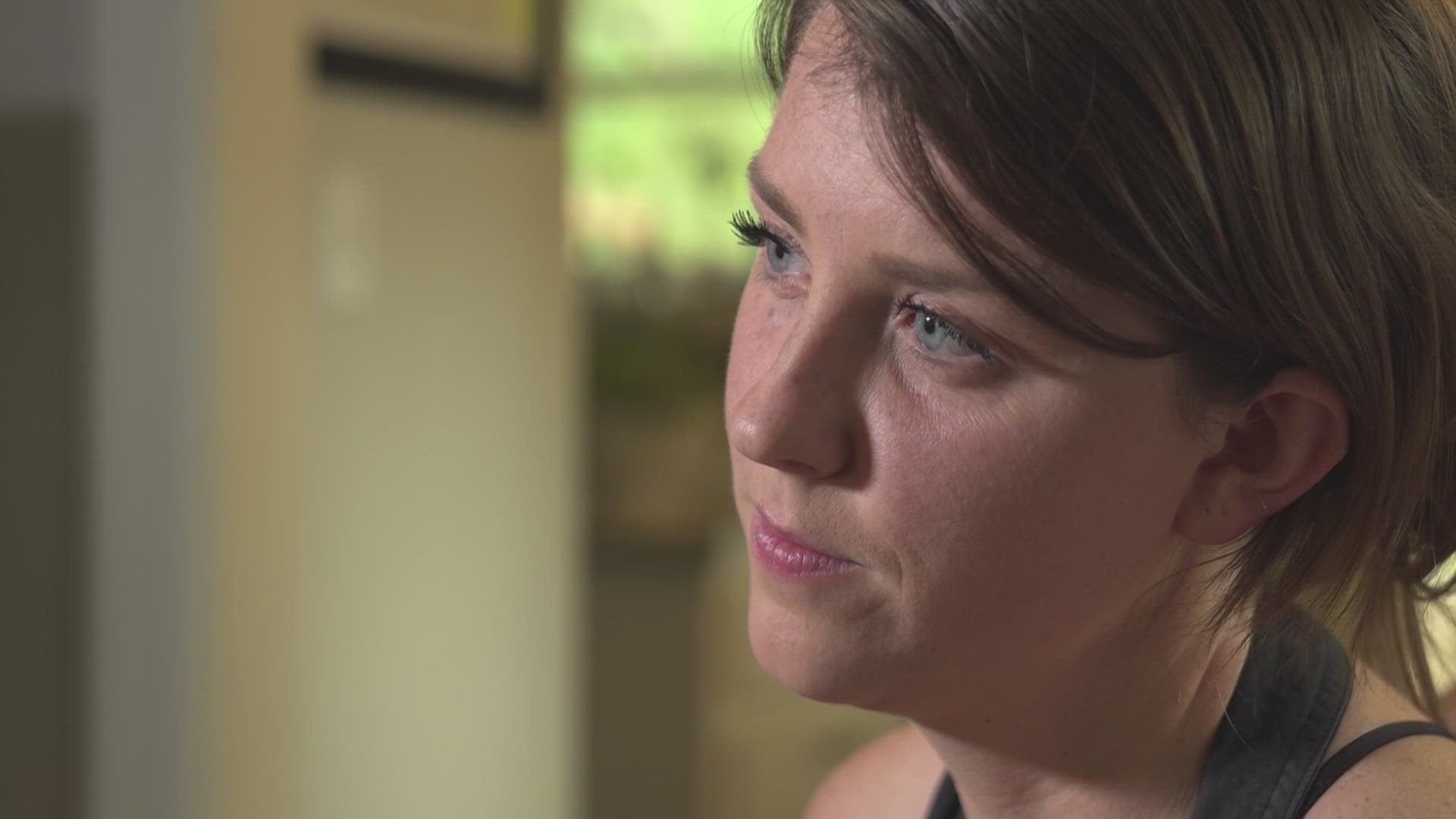FORT WORTH, Texas — At a quick glance, 27-year-old Danielle Sherrill looks perfectly healthy.
It was the end of the week. The Fort Worth woman’s roommate just returned from purchasing their groceries for the week. Sherrill sat in their living room and watched as the groceries were put away and their two dogs roamed the backyard.
She wanted to help but said conserving her energy has become an essential part of getting through each day.
“It definitely feels like I’m living in a different world than most people,” Sherrill said, as she struggled to get up from a chair.
She has suffered from long COVID since February 2023. Sherrill is unable to complete daily activities.
Her battle with long COVID came after contracting the coronavirus four times since 2020.
“A lot of people don’t know about how long COVID is disabling people,” Sherrill said.
Sherrill, who enjoyed hiking and jogging regularly, told WFAA she was perfectly healthy prior to developing long COVID.
Now, the chronic illness has left the former ecology instructor disabled.
“What happened was that I still was left with a lot of fatigue, but then I started having random episodes where all of a sudden I would lose feeling in my legs and then it would travel to my arms,” Sherrill said. “Then, in some of the worst cases, I couldn’t speak. I would be just paralyzed.”
Sherrill told WFAA that her symptoms range from paralysis to chronic pain and fatigue.
The 27-year-old, who worked full-time teaching children about ecology in Texas, was forced to leave her job. She couldn’t keep up with daily hikes her job required.
“The hardest part is just learning to live within my limits now,” Sherrill said.
Sherrill said she’s unable to drive due to numbness and paralysis. At times, she needs help taking showers and feeding herself.
"If I drive, my body starts to go numb while I’m driving, so I have to pullover quickly," Sherrill said. "It’s like my whole brain shuts down. I can’t think, I can’t form words, I’m incapable of telling people that I’m with what’s wrong. In some cases, I’ve gone out of the car, and they have to carry me back to the car and I just lay there for 20 minutes until I can talk again."
These days, she struggles to get through a two-hour workday at her new office job. In total, Sherrill only works ten hours per week, and sometimes, she can barely manage to physically keep up.
“My grandma works with me and takes me home, and she has to walk me to the door and put me in bed… and that’s just the day for me,” Sherrill said.
She’s not alone.
In March 2023, the Centers for Disease Control estimated nearly 6% of U.S. adults, or about 16 million adults, were experiencing long COVID.
Dr. Mark Casanova, a member of the Dallas County Medical Society, told WFAA that the chronic illness is typically difficult to treat.
“Long COVID is kind of a no man’s land type of condition,” Casanova said. “These individuals are not struggling with just simple, run-of-the-mill fatigue. This is serious, debilitating fatigue mental fuzziness and long-term lung damage. The spectrum of long COVID can be quite broad, but for many individuals, it can also be quite severe, life-changing and debilitating.”
Research surrounding the condition is still in the early stages, and Casanova said there are still a lot of unknowns, which makes it difficult to provide treatment for those suffering from long COVID.
“That stymies us in terms of effective treatments,” Casanova said. “It can fall under neurology, primary care, chronic infectious diseases, it doesn’t have a home, per se, which is why so many individuals are struggling.”
Sherrill told WFAA that she has faced countless roadblocks while seeking medical care for her symptoms.
"The hardest part is learning how to ask for help and once I'm able to ask for help, realizing there is not help from the sources I would hope it would come from," she said.
To date, she has only found one specialist in North Texas who accepts her insurance. She’s still waiting for her first appointment.
The wait time? Three months.
“I feel forgotten,” Sherrill said. “I think a lot of people feel forgotten. The people that I’ve connected to that have long covid, we all kind of feel the same way. People aren’t really paying attention to it.”
Sherrill, who leans on online support groups, said she is grateful for support she has received from other young people around the world who are dealing with the same condition.
Some of her friends have set up an online fundraising campaign to support her financial and medical needs.
“The sad twist of irony, it’s younger individuals that felt that they fared better in terms of potential risk of serious infection and death. Yet, because of the sheer math and numbers, they have the potential to bear the brunt of long COVID symptoms that result in disability, inability to work, inability to provide for themselves and their family,” Casanova said.
While most of the world has put the pandemic behind them, those stuck with the lingering effects of COVID are left suffering through life-altering symptoms and wondering if their lives will ever return to the pre-pandemic normal.

